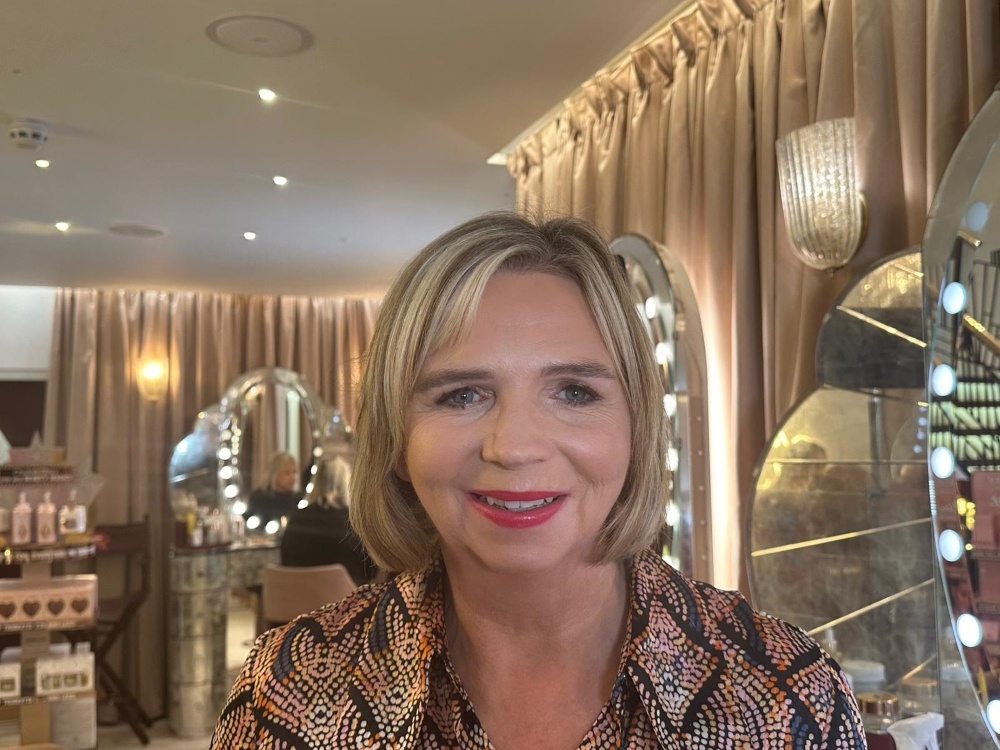Discovering The Lily Foundation
Claire’s connection to the charity began through her stepdaughter, Kate, who is Liz’s sister-in-law. This led her to learn about mitochondrial disease and the mission of The Lily Foundation. “Then I got involved in supporting the board to help the charity grow and achieve its 10-year plan. Hearing from Liz about founding the charity after the loss of her daughter Lily inspired me to support this incredible cause,” she explains.
Professional background and how it fits with the mission
“I worked for nearly 20 years in Human Resources with the Metropolitan Police and have spent the last 13 years in the NHS as an HR director,” Claire explains. “Within the health service there are lots of health, social, race and disability inequalities. It’s a passion of mine to try and drive reform in these areas.” Her background in HR aligns with The Lily Foundation's mission, particularly in addressing health inequalities.
Transitioning to a charity trustee role
Though new to charity governance, Claire’s 13 years of board experience in the NHS has equipped her with essential skills. “Of course, that’s different to being a trustee, but the experience I have is invaluable. My knowledge of governance helps ensure we’re meeting objectives for fundraising, research and financial management,” she adds.
Working with The Lily Foundation board
The Lily Foundation board comprises a diverse team with expertise across HR, law and finance, all dedicated to fighting mitochondrial disease. “Each trustee brings something unique,” Claire says, noting how cross-industry insights strengthen their decisions. “It’s a fabulous development opportunity for all of us as well. Because we all work in different industries, it’s a great chance to listen and learn from others.”
Biggest challenges as a trustee
“Time and scheduling can be difficult for all trustees, but we’re improving this with advance planning and board away days,” Claire shares. Adjusting to the dynamics of a small charity was also a learning curve that she’s embraced. “It’s like any other board in that respect – in industry or healthcare, the board members change and it’s not dissimilar. There’s probably more stability on the Lily board than most others, actually.”
Most rewarding aspect of being a trustee
For Claire, the most fulfilling moments come from seeing the charity’s impact. “Events like the Lily Family Weekend show how The Lily Foundation unites families and provides critical support,” she reflects. “The beauty of it is bringing people together who can not only discuss their experiences but also make the clinicians aware of the challenges they face and what could be done to improve their lives.”
Involvement beyond board meetings
Claire actively attends events to support the foundation, including the Lily Ball and other fundraising activities, while her husband supports the Lily Golf Day. “I’ve yet to fundraise myself, but I’m exploring options,” she laughs. “I need to do something but I can’t run! So I need to work out what that is first!”
What inspires you most about The Lily Foundation?
“Liz’s resilience in founding the charity amidst personal loss, and the entire team’s dedication, continually inspire me,” Claire says. The team’s commitment ensures funding and support reach families in need. “It’s an amazing team with such motivation to ensure the profile of Lily is always kept as high as possible.”
The board’s vision for the future
The board is focused on advancing mitochondrial disease research, maximising grants and increasing awareness. “Our ultimate vision is finding a cure,” Claire explains. “To do that you need to get those grants, raise funds but also raise awareness of the condition.”
Hope for a cure for mitochondrial disease
“With advancements in AI and diagnostics, there are now occasions when we’re able to give a genetic diagnosis and even stop the transmission of the disease through reproductive options, so I do think we’ll find a cure one day,” Claire says, expressing hope for the future. “But with mitochondrial disease you haven’t got a huge patient cohort like with other, more common diseases. I do think it will come, but I’m just not sure when.”
Raising awareness of mitochondrial disease
“Raising awareness of mitochondrial disease and The Lily Foundation’s support network is vital,” Claire emphasises. Recent recognitions, such as Liz’s MBE, have boosted visibility, testament to the foundation’s impact. “It’s been wonderful of late, hasn’t it? That’s fantastic publicity and really well deserved.”
Advice for aspiring charity trustees
For those considering a trustee role, Claire highlights the personal growth and fulfilment it brings. “It’s a rare chance to support a meaningful cause, and work and grow alongside diverse professionals,” she says, expressing a deep commitment to her trustee role. “I love it and I don’t ever want to come to the end of my term!”
This article was first published in November 2023.

